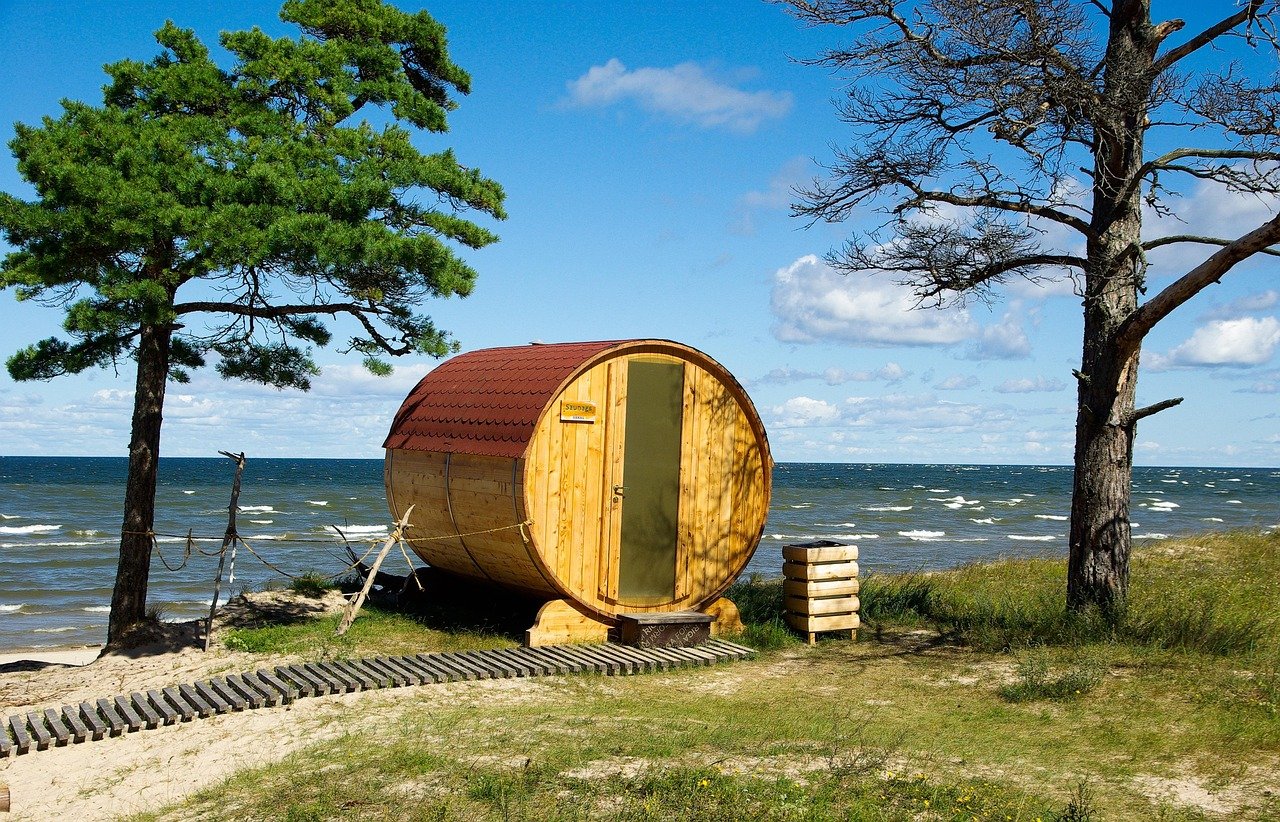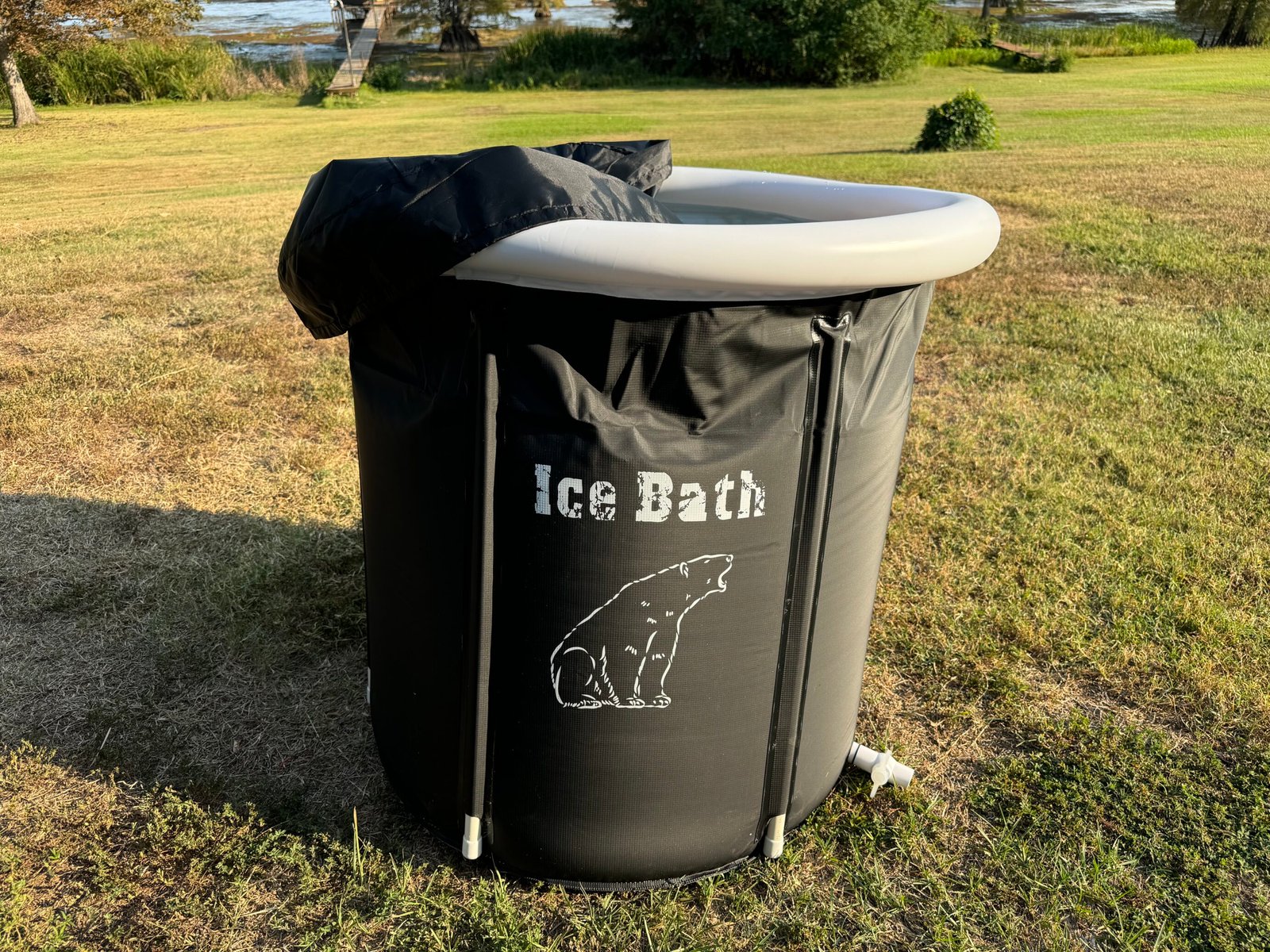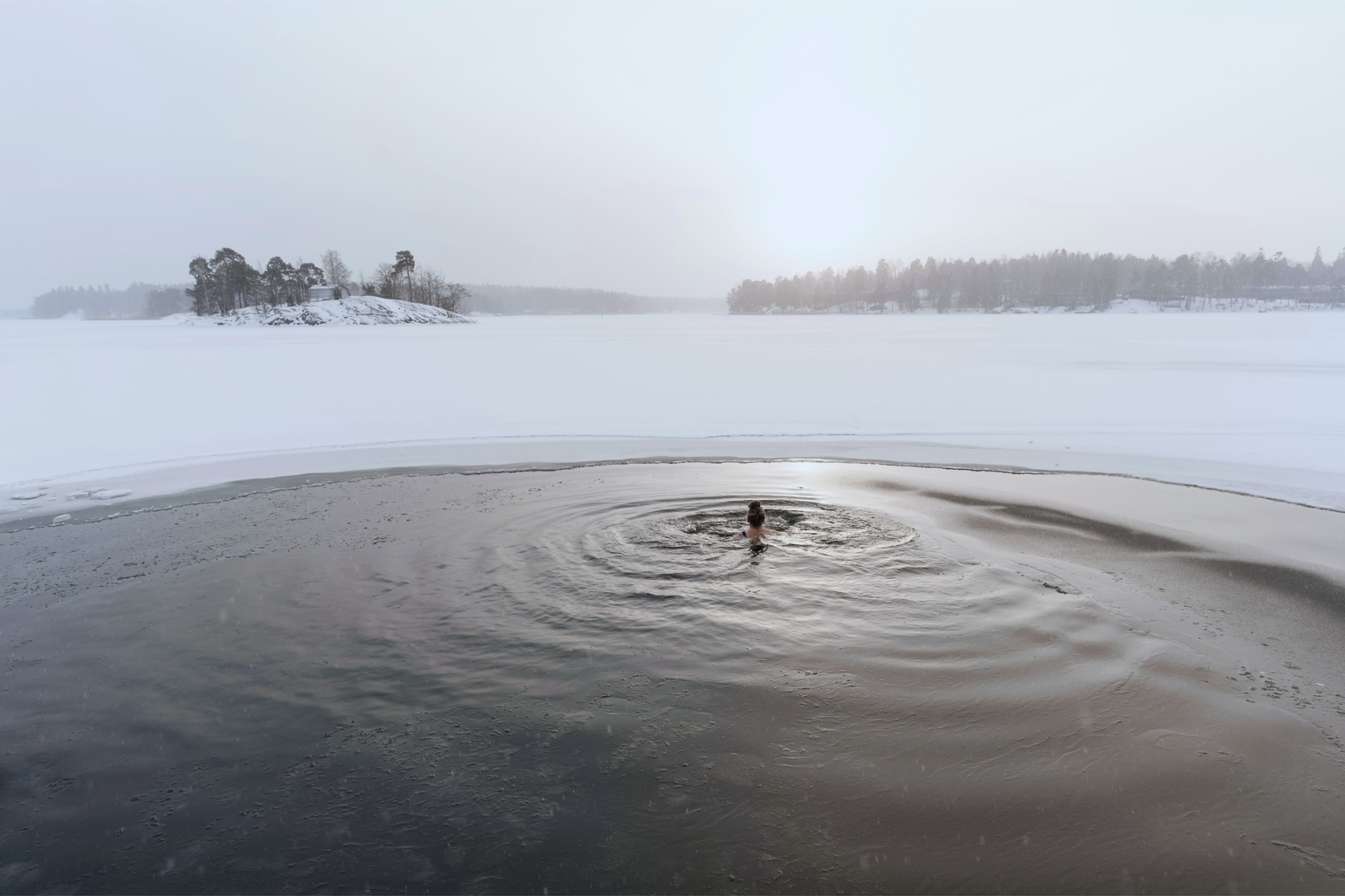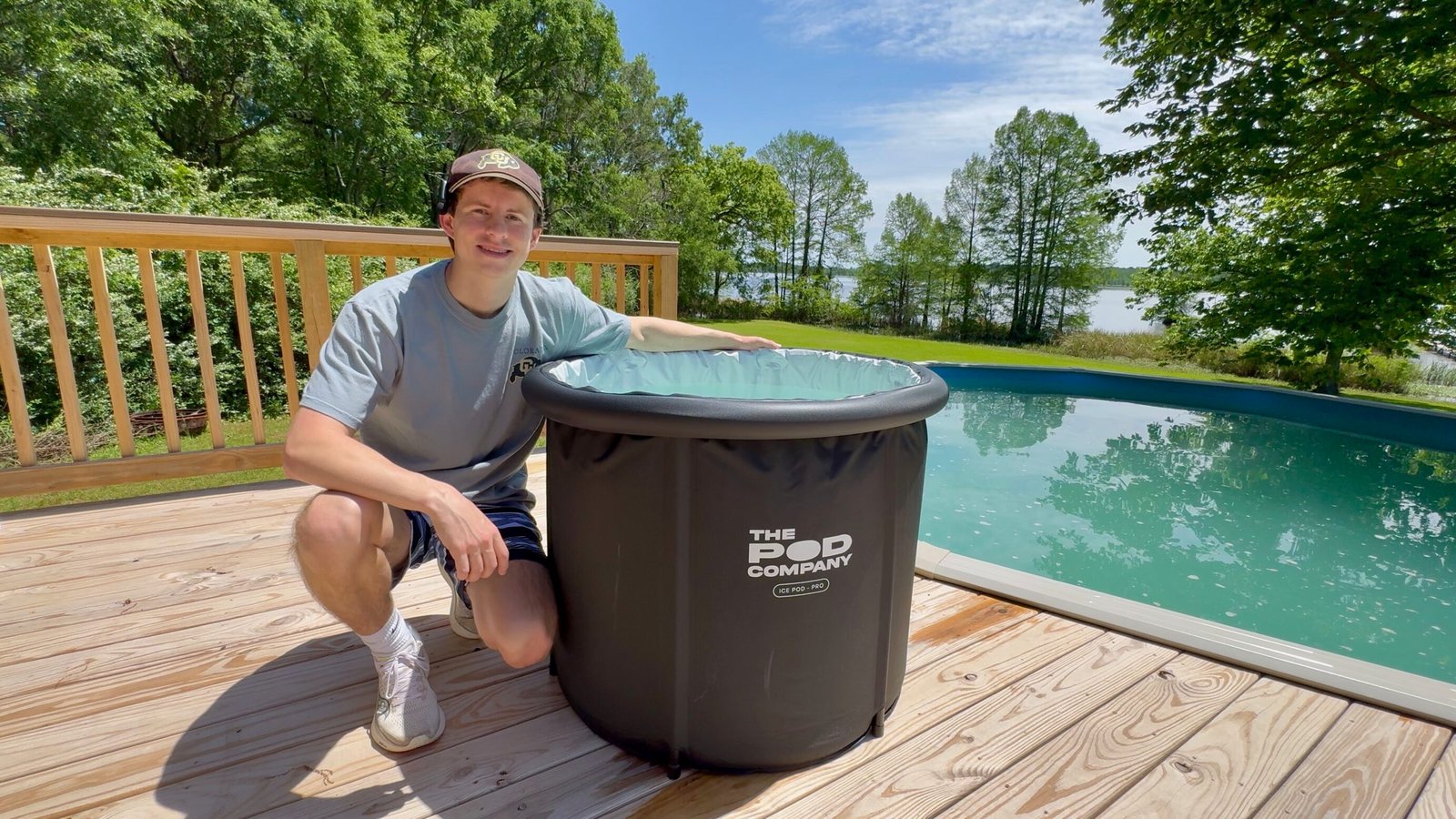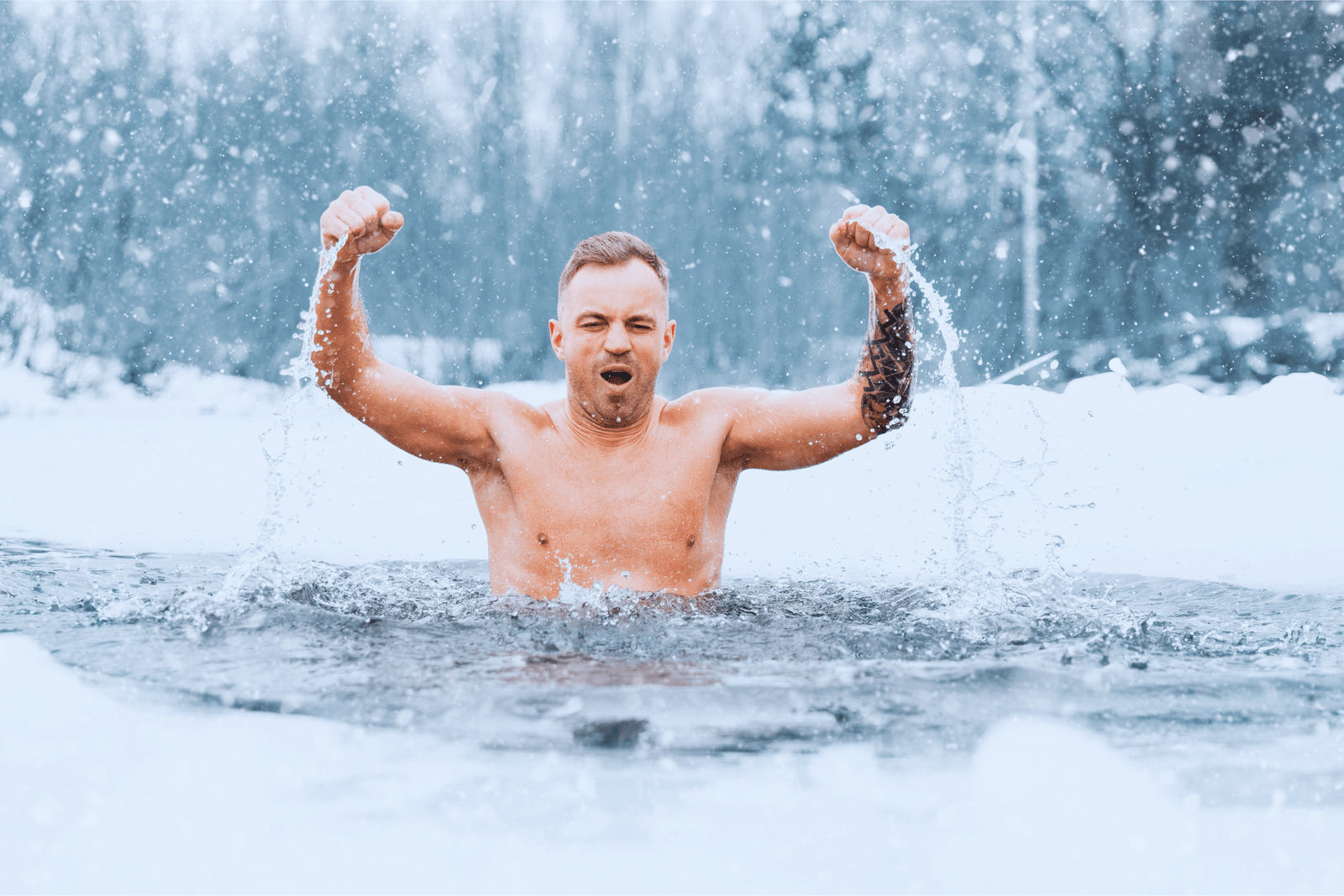Long-Term Mental Health Benefits of Cold Water Therapy

Cold plunges do more than jolt your body awake – they can transform your mind. From clearing brain fog to building lasting resilience, the long-term mental health benefits of cold water therapy are too powerful to ignore.
In this article, we’ll dive deep into how cold water can create lasting changes for your mental well-being.
What is cold water therapy?
Cold water therapy means exposing your body to cold water through various methods: Cold showers, ice baths, cold plunges, or cold water swimming.
Remember that what works for one person may not work for another. Your body’s response to cold is unique to you.
5 Long-Term Mental Health Benefits
1. Reduced Anxiety
Regular cold exposure helps train your body to stay calm under stress by better utilizing the parasympathetic nervous system, the branch responsible for relaxation and recovery.
Cold water therapy can lower anxiety symptoms by teaching the mind to remain calm during discomfort.
2. Depression Relief
Cold water therapy naturally boosts dopamine levels, the brain’s “reward” chemical associated with feelings of pleasure and motivation.
Research shows that consistent cold exposure can significantly increase dopamine by up to 250%, potentially leading to lasting improvements in mood and helping reduce symptoms of depression.
Many who practice it regularly report feeling more positive, motivated, and emotionally balanced.
3. Increased Stress Resilience
Cold exposure reduces cortisol (your body’s stress hormone) over time. When you face cold water regularly, your body becomes more efficient at processing stress hormones.
This creates a higher threshold for what triggers your stress response in everyday life, making you more resilient.
4. Increased Cognitive Function
Cold exposure may enhance mental clarity, focus, and memory by increasing blood flow to the brain and promoting the release of neuro-protective chemicals. Regular cold water therapy may even help slow down age-related cognitive decline, helping you stay sharp as you get older.
Many people notice improvements in decision-making, creativity, and concentration after consistent practice.
5. Better Mood
Cold exposure triggers lasting changes in your brain chemistry. Regular exposure stimulates the release of norepinephrine and endorphins, natural chemicals responsible for boosting mood and emotional stability.
Over time, cold water therapy can help regulate your body’s feel-good systems and create a more balanced emotional state.
how to get Long-Term Benefits
If you want to get long-term mental health benefits from cold water therapy, I recommend taking cold showers a few times a week and ice baths or cold plunges when you can.
Consistency, moderation, and not drastically changing your routine will benefit you long-term.
Consistency
Taking cold showers a few times a week is easier than setting up ice baths. If consistency means more cold showers than cold plunges, that’s perfectly fine. Start with warm water and gradually decrease the temperature if cold showers feel too harsh at first.
Moderation
You don’t need daily freezing showers to benefit. Exposing yourself to cold 2-3 times a week can provide significant benefits over time.
Don’t change everything at once
Many people try to change too much at once and quit after a few weeks. Start small – maybe 30 seconds of cold at the end of your normal shower – then slowly build up your tolerance.
Conclusion
From easing anxiety and depression to sharpening your mind and lifting your mood, consistent cold exposure can bring powerful, lasting benefits. The key is to stay consistent, practice moderation, and ease into it without overwhelming yourself.
Whether it’s a few cold showers a week or the occasional ice bath, small, steady steps can add up to real transformation over time.
What’s your favorite cold therapy benefit? Let me know in the comments below!
FAQs
Medical Disclaimer
The information contained in this post is for informational and educational purposes only. It is not intended to provide medical advice or to take the place of such advice or treatment from a personal physician. All readers/viewers of this content are advised to consult their doctors or qualified health professionals regarding specific health questions or before embarking on any new health or wellness routine, including saunas and cold plunging. Neither the author(s) nor the publisher of this content take responsibility for possible health consequences of any person or persons reading or following the information in this educational content. All viewers of this content, especially those taking prescription or over-the-counter medications, should consult their physicians before beginning any cold plunging routine or other health or wellness program.

